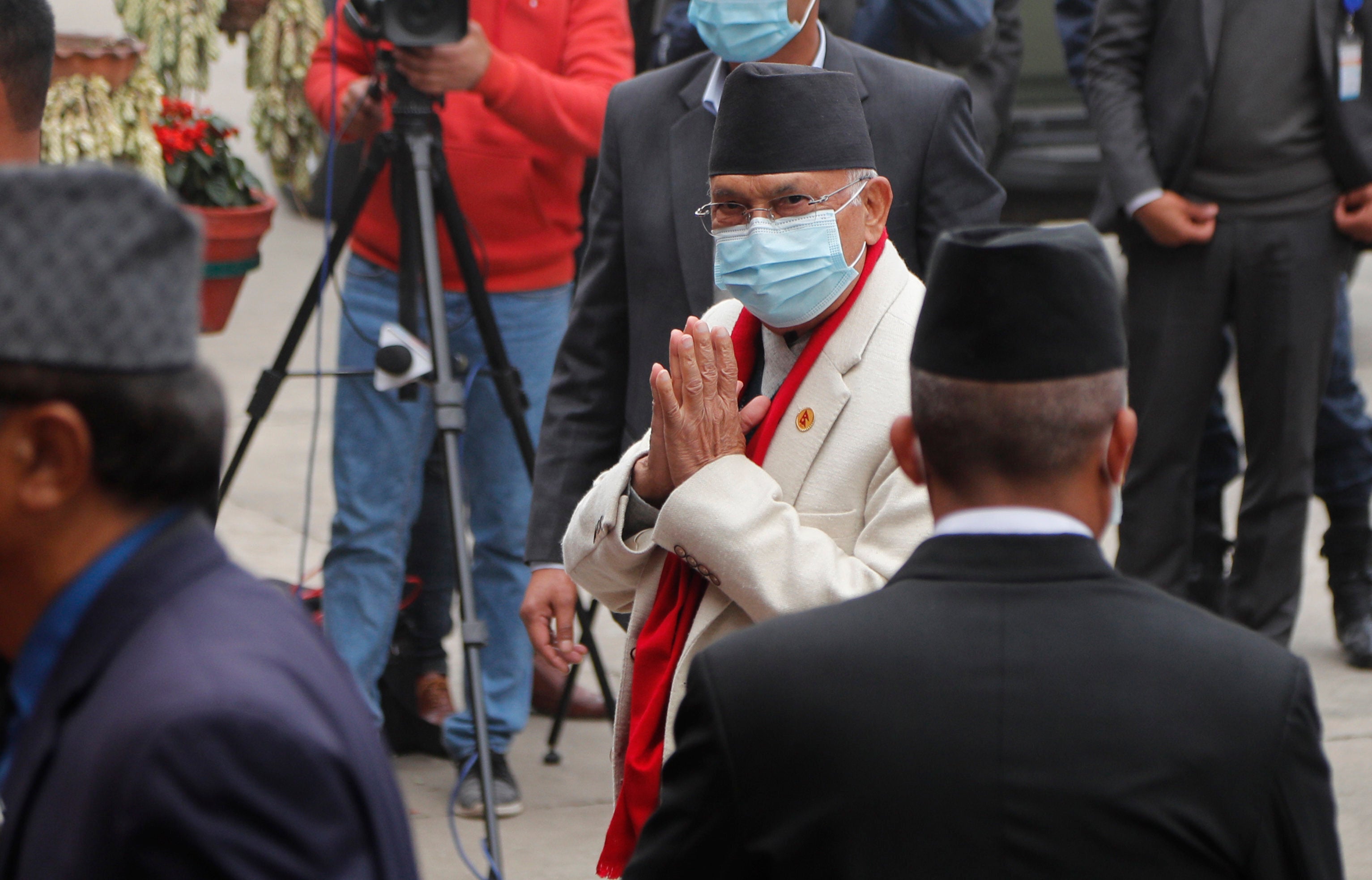Nepal Parliament, reinstated by high court, begins session
After being reinstated by the nation’s Supreme Court, Nepal’s Parliament has begun a session that will likely determine the future of the prime minister and the government

Your support helps us to tell the story
From reproductive rights to climate change to Big Tech, The Independent is on the ground when the story is developing. Whether it's investigating the financials of Elon Musk's pro-Trump PAC or producing our latest documentary, 'The A Word', which shines a light on the American women fighting for reproductive rights, we know how important it is to parse out the facts from the messaging.
At such a critical moment in US history, we need reporters on the ground. Your donation allows us to keep sending journalists to speak to both sides of the story.
The Independent is trusted by Americans across the entire political spectrum. And unlike many other quality news outlets, we choose not to lock Americans out of our reporting and analysis with paywalls. We believe quality journalism should be available to everyone, paid for by those who can afford it.
Your support makes all the difference.After being reinstated by the nation's Supreme Court Nepal’s Parliament began a session on Sunday that will likely determine the future of the prime minister and the government.
The split in the ruling Nepal Communist Party has left Prime Minister Khadga Prasad Oli without the majority of votes in Parliament required for him to continue in office. Oli so far has refused to step down and is determined to continue.
A vote of no confidence against Oli is likely to be brought by the splinter group from his own party, which would force him to step down. The group has not yet made a formal decision.
Oli would have to get the support of other political parties in Parliament in order to stay in power. The process could take days, leaving an unstable political situation in the country.
Oli had the president dissolve Parliament in December and announce fresh elections after the rift in the party. Last month, the Supreme Court ordered the reinstatement of Parliament in response to several cases filed with the court charging that Oli’s decision to dissolve the legislature was unconstitutional.
Since Parliament’s dissolution, there have been regular street protests against Oli by tens of thousands of people in Kathmandu and other cities.
Oli became prime minister after the party won elections three years ago. His party and that of former Maoist rebels had merged to form a strong Communist party to win the elections.
However, there has been a power struggle between Oli and the leader of the former Maoists rebels, Pushpa Kamal Dahal, who is also co-chair of the party. The two had previously agreed that they would split the five-year prime minister’s term, but Oli has refused to allow Dahal to take over.